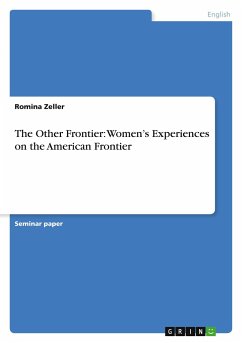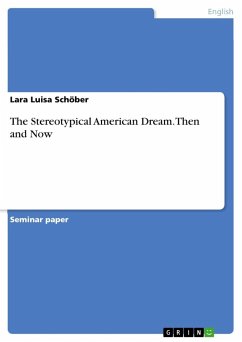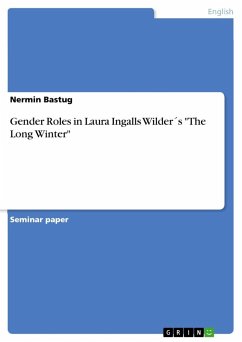Seminar paper from the year 2012 in the subject American Studies - Literature, grade: 2,0, Ruhr-University of Bochum (Englisches Seminar), course: Frontier Culture, language: English, abstract: The American Frontier is one of the United States' great myths that has shaped the whole nation's perception of their world. Even though many scholars are puzzled by its meaning and the vague definition of the Frontier (West 1994, 115), it still remains a concept which "captured the American public's imagination and [is] now deeply woven into the American consciousness" (Ridge 1991, 2). The Frontier immediately evokes images in everyone's head - pictures of a vast and wild land that has been conquered and subjugated by man.Even Frederick Jackson Turner, one of the great historians of that time, called the Frontier "the meeting point between savagery and civilization" (Engler 2007, 415). This wilderness is mostly depicted by settlers moving over the mountains in their trail wagons and also strong and fearless cowboys facing the dangers and isolation of the Frontier. In history books, essays and many accounts of the American Frontier we find the glorified man (Hahn 2008, 149) who turned wilderness into the American nation. Of most of the ideas of the Frontier one important element has been denied or is missing - the pioneer woman. The experiences of all these women who were on the Frontier as well and were facing the wilderness are often denied or hardly mentioned. Female scholars bemoaned this obscured reality. Inspired by the feminist movement in the 20th century, women were eager to "recover their past" and historians tried to "place absent women in the westward movement" (Walsh 1995, 244). Therefore, this paper tries to find answers to the questions of what this male myth of the Frontier looks like, what the reasons for muting women's experiences in frontier history were, and what the female role in this context was. It will also address one common element that can be found in many of the accounts of pioneer women - loneliness. It is to examine how loneliness was expressed, how these women coped with their loneliness and tried to overcome it. Then we will learn how women perceived violence and how they counteracted social disorder and describe women's tasks as "missionaries of civilization"(Jeffrey 1983, 79). As the topic of this paper indicates we will take a look at "the other Frontier" and try to see it through the eyes of the pioneer women.








